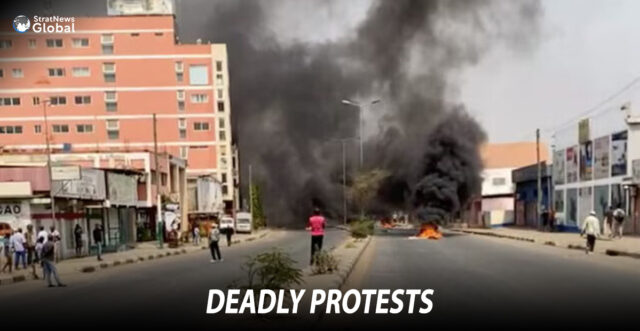The government in Angola on Wednesday said that 22 people had died in violent protests over a fuel price hike, up from the earlier count of four.
The strike was called by taxi operators in protest against the government’s decision to hike diesel prices by over 33% — a move introduced in early July as part of efforts to phase out fuel subsidies in the oil-rich country.
This has not only led to a steep rise in fares for ordinary Angolans who depend on taxis for daily travel, but also pushed up the prices of essential items, as transporters have passed on their increased fuel costs to consumers.
However, President Joao Lourenco has brushed aside these concerns, alleging that the protests are merely using fuel prices as an excuse to destabilise the government.
Looting, vandalism and clashes with police started in the capital Luanda, then spread to other provinces.
Cabinet Meeting
President Lourenco’s cabinet met on Wednesday and received an update on the security situation and police response.
A presidency statement said there had been 22 deaths, 197 people injured and 1,214 arrests. Sixty-six shops and 25 vehicles had been vandalised, and some supermarkets and warehouses looted, the statement said.
High Subsidy Rate
Angola has been gradually removing fuel subsidies since 2023, when a petrol price hike also triggered deadly protests, encouraged by the International Monetary Fund among others.
Subsidies amounted to as much as 4% of gross domestic product (GDP) last year, according to the Southern African oil-producing country’s finance minister.
Investors are closely watching the drive to phase out subsidies.
Pieter Niesten, portfolio manager for emerging market debt at Neuberger Berman, told Reuters that fuel subsidies were estimated to account for 1.8% of GDP this year, contributing to fiscal pressures.
“Investors and international financial institutions regard subsidy reform as evidence of Angola’s commitment to difficult structural adjustments,” he said.
(With inputs from Reuters)





